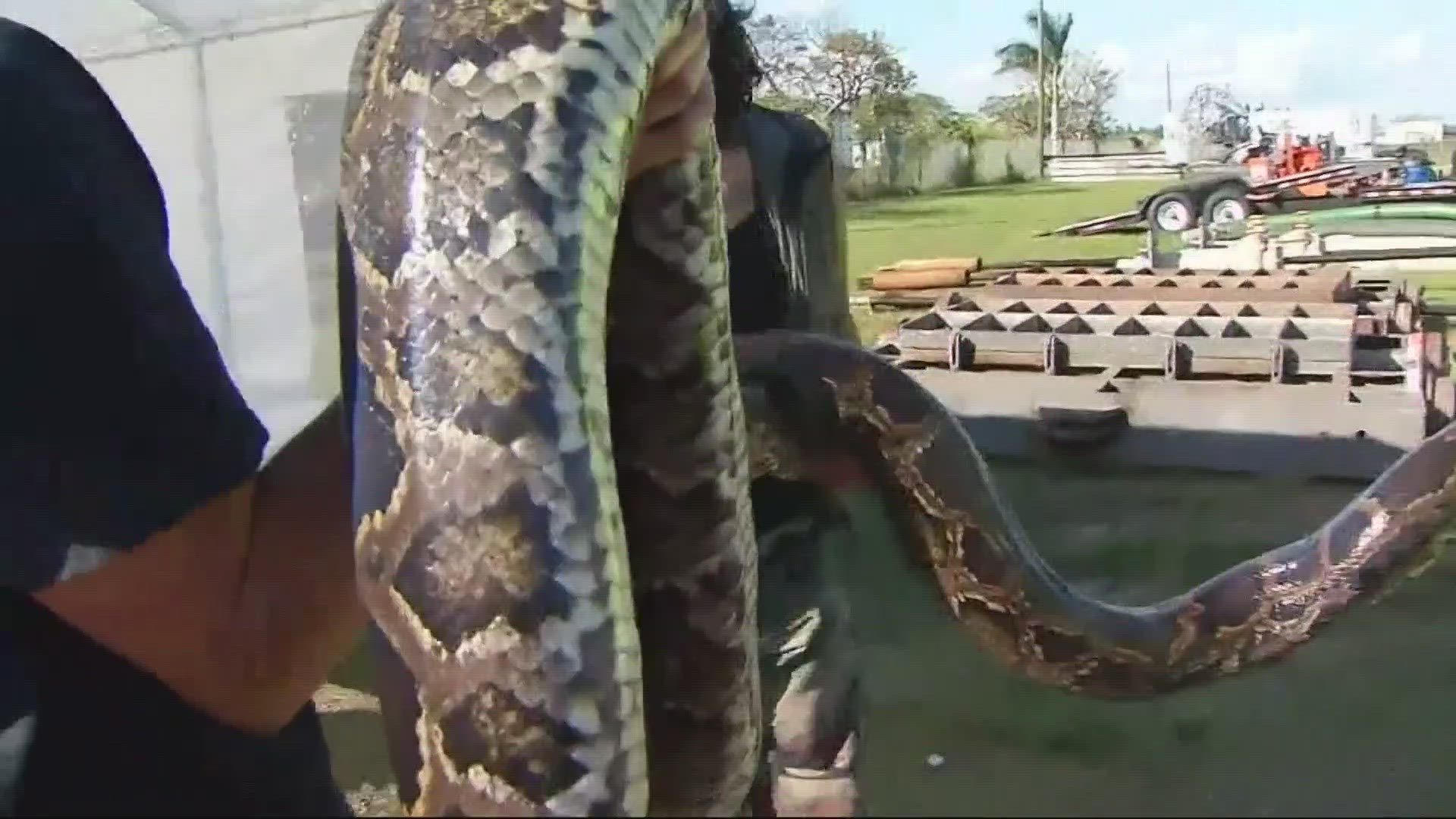JACKSONVILLE, Fla. — It's Indiana Jones's worst nightmare - working with snakes.
The University of Florida is sending invasive Burmese pythons back into the wild - but its all in an effort to track the unwelcome guests.
"We know that 17,000 pythons have been removed from Florida, more than that now, but we don't know how many were there to start with," said UF Research Assistant Scientist Melissa Miller.
Miller has no problem handling slithering serpents twice her size - it's a part of her day job.
For her research team, the scariest thing about Burmese pythons isn't their size or teeth - it's the impact they're having on the other animals around them.
"They're responsible for decimating populations of our native mammals," said Miller. "They've also introduced parasites and pathogens that have spread into our native wildlife."
Since November, Miller and her team have sent eight pythons back into the wild in the Everglades.
It's all part of a plan, because each of those snakes slithered away with two radio trackers.
"By tracking one male, we can come up on these breeding aggregations and remove 8-9 additional snakes," said Miller.
The research team plans to track 15 snakes, and will start using new drone technology in the next few months to streamline the research.
But the question remains, what about us in the Northern part of the Florida? Will those pythons work their way to the First Coast?
Miller says an extended cold snap in 2010 killed many of the snakes in and around the Everglades, but the ones that made it through...
"Those pythons that survived could be genetically predisposed to deal with colder temperatures," said Miller. "That could allow them to move a little further North."
Tracking each snake for 2-3 years should help paint a picture of their movement, but Miller says, ultimately, they love it where its warm, so they won't be a regular sight in North Florida any time soon.

